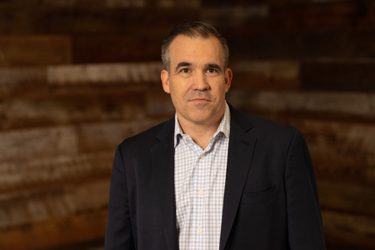Companies To Watch: KeifeRx

By Wayne Koberstein, Executive Editor, Life Science Leader
Follow Me On Twitter @WayneKoberstein

Knocking on the door of neuroscience drug approvals.
SNAPSHOT
KeifeRx has a full range of neuroscience (NS) drug candidates in development, spanning later-stage clinical assets to several novel, pre-IND technologies. Nilotinib (coded KFRX01) is close to entering a Phase 2b trial for treating early Alzheimer’s disease; and bosutinib (KFRX02) is ready to enter a Phase 2b trial in Lewy body dementia. Nilotinib is a reformulation of the existing drug branded as Tasigna, a tyrosine kinase inhibitor (TKI) indicated for chronic myeloid leukemia. KeifeRx intends to develop a succession of TKIs for NS disorders because of their ability to penetrate the brain, induce autophagy, and support bulk disposal of toxic proteins that trigger neurodegenerative diseases. Some TKIs also modulate peripheral and central immunity, and the company has several early-stage candidates targeting immune-related indications.
WHAT’S AT STAKE
Repurposing of already-approved drugs to address additional indications is a recognition that medicinal agents can possess more than a single purpose or mechanism of action. In short, a drug may have multiple, beneficial activities in entirely different therapeutic areas. In the case of KeifeRx, the company is aiming to transform a cancer drug into neuroscience and immune-focused therapies. In fact, the company sees the same repurposing potential in a whole class of existing oncology drugs, the TKIs.
KeifeRx came together in late 2019, started by a group including two scientists from Georgetown University. Founded to license a set of compounds and technology developed at Georgetown, the company focused on how to use TKIs in neurogenerative diseases. Its current CEO, Chris Hoyt, first became involved with the company in 2020, initially as an investor. Hoyt knew two of the founders from other ventures and became CEO at KeifeRx the next year, adding deep bio-business experience and acumen to the team.
One cofounder, Dr. Charbel Moussa, now heads the scientific advisory board, and contributed the idea that sparked the company. As Hoyt puts it, “There should be a way to use drugs that are effective in cancer to reduce toxic proteins in the brain, in the way the drugs affect tumors and leukemia.” Moussa’s Georgetown lab ultimately won patents on two existing leukemia drugs, one being nilotinib, a Novartis product, and the other, bosutinib, a Pfizer product, for use in neurodegenerative conditions. Since then, his lab has also developed novel TKIs with improved action and reformulated nilotinib and bosutinib. KeifeRx drugs are small molecules, orally delivered, somewhat low-dose, and they trigger autophagy in the brain to eliminate toxic proteins implicated in neurodegenerative diseases, including amyloid beta in Alzheimer’s disease and alpha-synuclein in Parkinson’s disease.
Undoubtedly, this is an exciting time to be in the neuroscience space. Expectations are high for the marketing approval of some breakthrough products in 2024. KeifeRx has marked its own regulatory milestones with FDA approvals of its INDs for Phase 2b trials of nilotinib and bosutinib, as well as some advantages in completing the remaining steps through Phase 3. “We’re actually looking to move the clinical trials for our early-purposed drugs through financing and the NIH grant process. Separately, we are raising financing rounds right now to work the pre-IND studies for the preclinical assets. So, we are approaching both sides of our pipeline.” At this point, it couldn’t look much better for pipeline development if the company had planned it that way from the beginning.
VITAL STATISTICS
Employees: 3
Headquarters: McLean VA
Finances: Total raised $9M
Research partnership funding: Sponsored Research Agreement with Georgetown University to develop additional compounds
Latest Updates
September 2023: Initial close on $8M financing to support pre-clinical development.
October 2023: Initiated formulation and ADME studies on 4 NCE’s for potential treatment of CNS and Immune conditions.
